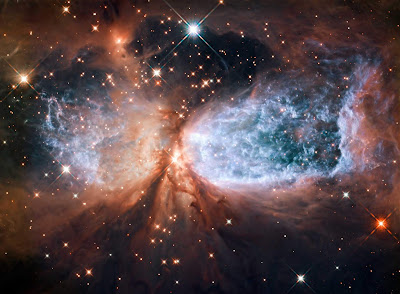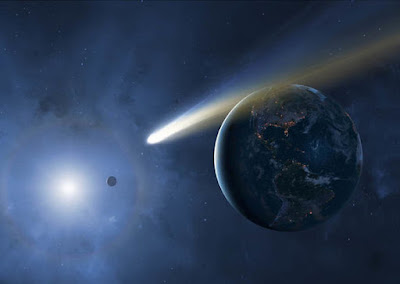20 Awesome Space Facts You've Always Wanted To Know
20 Awesome Space Facts You've Always Wanted To Know - Not A Myth
The concept of space and space exploration can lead to many questions, Why isn't Pluto a planet? Can you hear anything in space? How many space stations are there? As has been famously said, space is the final frontier. The greatest of unknowns, space is far vaster than we can comprehend and filled phenomenon we barely understand.This page is a continuously updated list of the most incredible, awe-inspiring and unbelievable facts about space. Whether it's for kids looking to learn more about space, or you're looking for incredible facts for an article, or even if you just love space facts for no real reason, this is for you.
- In 3.75 Billion years the Milky way and Andromeda galaxies will collide.
The Andromeda Galaxy is approaching the Milky way – where our solar system is – at rate of around
110 Km/s and eventually the two will collide to form a giant elliptical
galaxy.
- Space is completely silent. There is no atmosphere in space which means sound has no medium or way to travel to be heard. Astronauts use radio to stay in communication.
- The average surface temperature of Venus is 450 degree Celsius. Interestingly Venus is not the closest planet to Sun, Mercury is closer but because Mercury has no atmosphere to regulate temperature it has a very large temperature fluctuation.
- Sun is about 4.6 Billion years old (A billion is a thousand millions).
- Halley's Comet will be visible from Earth again in 2061. Discovered in 1705 by Edmund Halley the famous comet was last seen in 1986 and has only seen once every 75 to 76 years.
- Except for Earth all the planets in our solar system are named after god and goddesses of Greek and Roman mythology. Pluto was the god of the underworld, Mercury the messenger to the gods, Venus was the goddess of love and beauty, Uranus the only planet named after Greek god was the god of the sky, Saturn was the Roman god of agriculture, Mars was the god of war, Jupiter the largest planet of or solar system was named after the king of the gods and Neptune was the god of the sea.
- The word Earth is derivative of English and German words which means ground.
- There is a mysterious Planet X in our solar system. According to NASA it is Neptune sized planet taking an estimated 10 thousand years or more to make a complete orbit of the Sun.
- Neutron stars can spin 600 times per second. Neutron stars are the densest and tiniest stars of the known universe and they only have a radius of about 10 Km or 6 Miles.
- Research by Yale University scientists that a rocky plant called 55 Cancri E which has radius twice of Earth's and the mass eight times greater may have a surface made up of graphite and diamond. It's 40 light years away.
- One day on Venus is longer than one year. Venus has a slow axis rotation which takes 243 Earth days to complete its day.
- The Moon is moving away. Did you know the Moon is moving away from us? How is this happening? The Moon's orbit around Earth is getting larger every year about 3.8 centimeters. Somehow it is slowly pulling itself out of Earth's gravitational field.
- A full NASA space suit costs $12,000,000. While the entire suit costs a cool $12m, 70% of that cost is for the backpack and control module.
- If two pieces of the same type of metal touch in space they will permanently bond. This incredible fact is also known as cold welding and it happens because the atoms of two pieces of metal have no way of knowing they are separate. This doesn’t happen on Earth because of the air and water found between the pieces.
- The Moon was once a piece of the Earth. The theory is that when Earth was a relatively young planet, it was struck by a giant object and this collision broke a piece of the Earth away to create the moon. This piece then began to orbit the Earth as a result of its gravitational pull.
- Jupiter's 4 biggest moons are named Europa, Ganymede, Callisto and Io.
- The Solar System formed around 4.6 billion years ago.
- Nebulae comes in all shapes and sizes. Nebulae means cloud in Latin these are areas in which stars are being created or where a star has died.
- The astronauts were placed in quarantine after returning from the moon.
- The word astronaut comes from the Greek word “Astron” which means star and “nautes” which means sailor. The Russian cosmonaut has a similar meaning from ‘kosmos’ meaning universe and again “nautes” sailor.
Read More,
- 20 Ancient Torture Methods That Would Make Anyone Confess
- 14 Weird Things Normal in Past
- 20 Amazing Facts That Will Blow Your Mind
Glad to see you here. Keep visiting Not A Myth blog and don't forget to share this knowledge with your friends.Thanks for reading...!


















Post a Comment